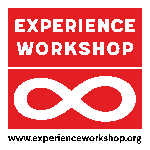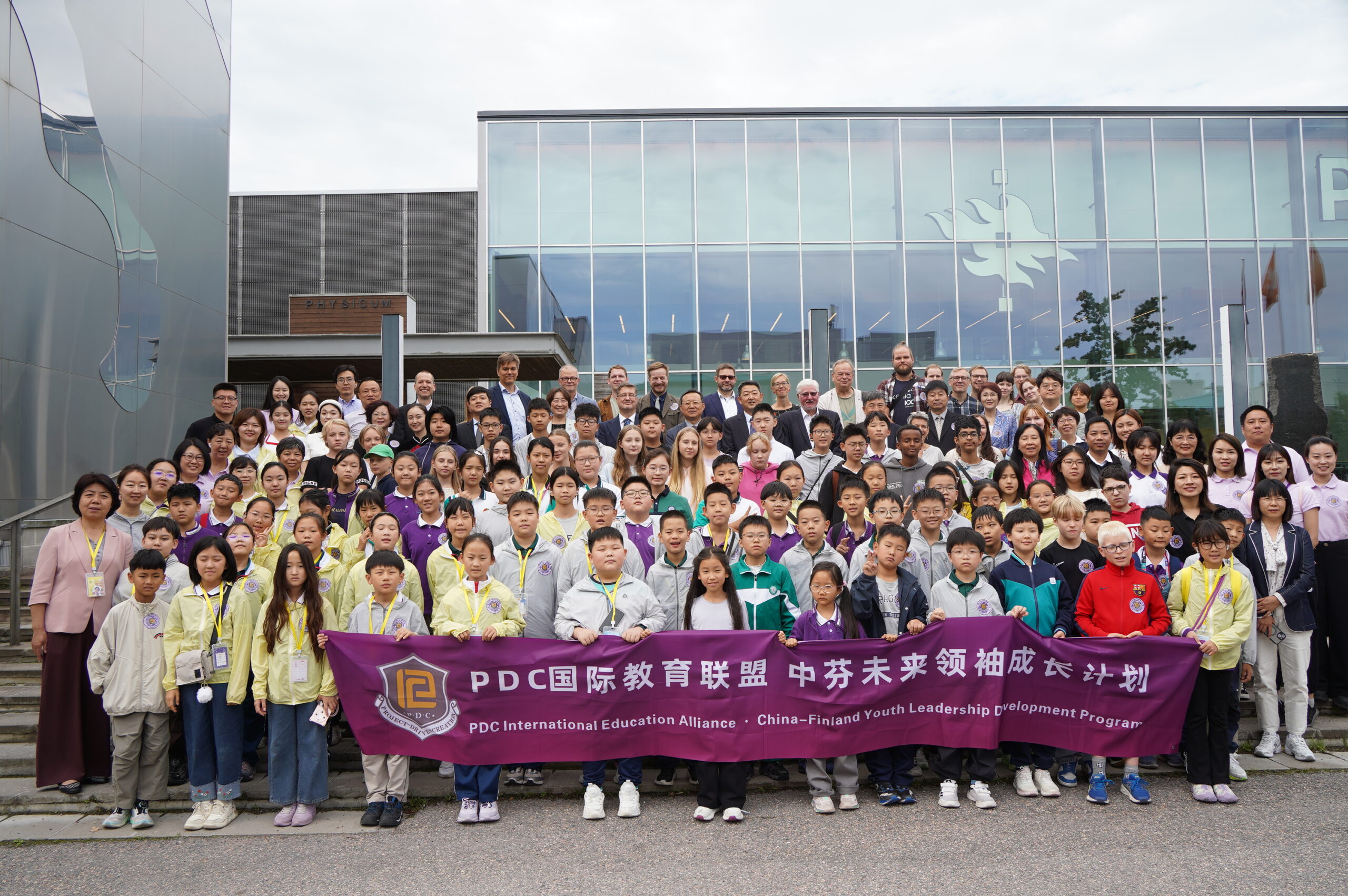
The PDC (Project-Driven Creation) journey began approximately ten years ago, rooted in an exchange where Chinese educators first learned about project-based learning through initial visits to Finland. This long-term dialogue has evolved significantly, and this year’s conference served as a showcase of the practices gathered over the years and their practical implementations in educational systems. For this event, Experience Workshop took on the role of the host organisation, facilitating a platform where a decade of Sino-Finnish educational collaboration could be celebrated and presented to a global audience.
The 5th PDC (Project-Driven Creation) International Education Conference convened on August 15, 2025, at the University of Helsinki’s Kumpula Campus, marking a significant milestone in the global dialogue on educational innovation. This year’s conference theme—”Educational Transformation and Practical Exploration of Sustainable Talent Cultivation from a Global Perspective”—brought together leading educators, researchers, policymakers, and students from China, Finland, and across Europe. The event, co-organized by Experience Workshop, Zoomland and Mrs. Ma Jun, founder of PDC Education Alliance, Principal of Beijing Chaoyang Hujialou Central Primary School, provided a dynamic platform for exchanging groundbreaking ideas and practices aimed at reshaping education systems to better prepare learners for an increasingly complex future. The conference addressed pressing questions about how education must evolve to cultivate talents capable of addressing sustainability challenges through innovative pedagogical approaches.
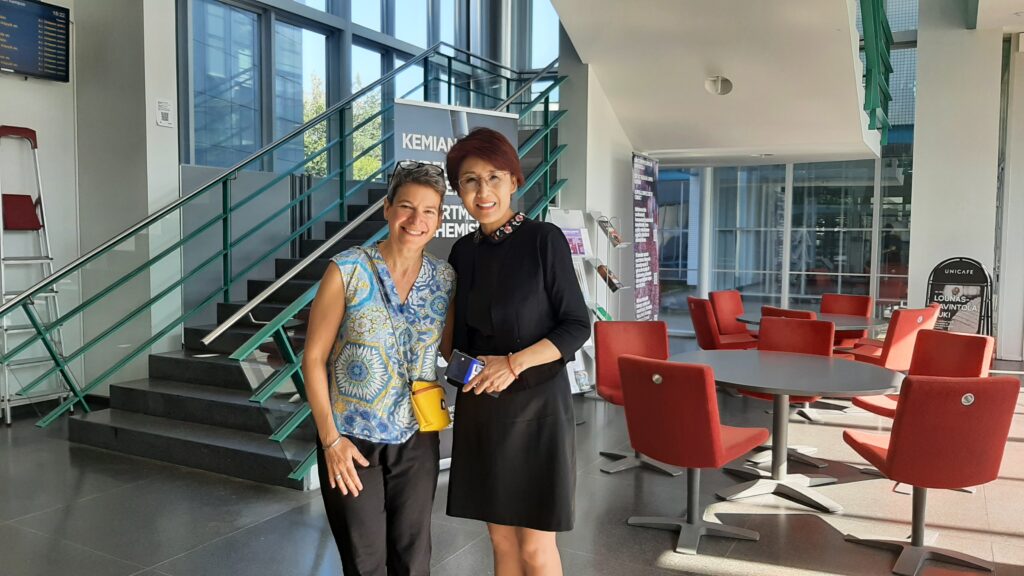
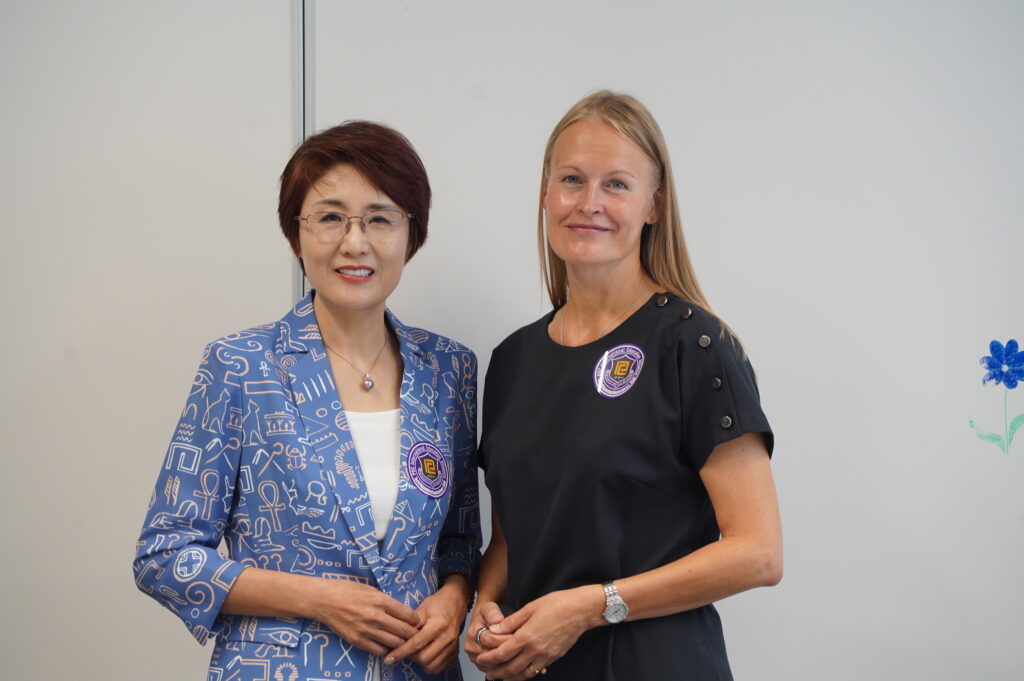
The timing of this conference proved particularly significant, as education systems worldwide continue to grapple with the transformative impacts of artificial intelligence, the growing importance of interdisciplinary learning, and the need to develop sustainable approaches to human development. The conference facilitated a rich sharing of ideas between Asian and European educational traditions, creating new approaches that might otherwise have remained within their respective cultural contexts. The presence of both high-level experts and practicing educators ensured that theoretical frameworks were consistently grounded in practical applicability, while student participants provided valuable first-hand perspectives on the educational experiences being designed for them.
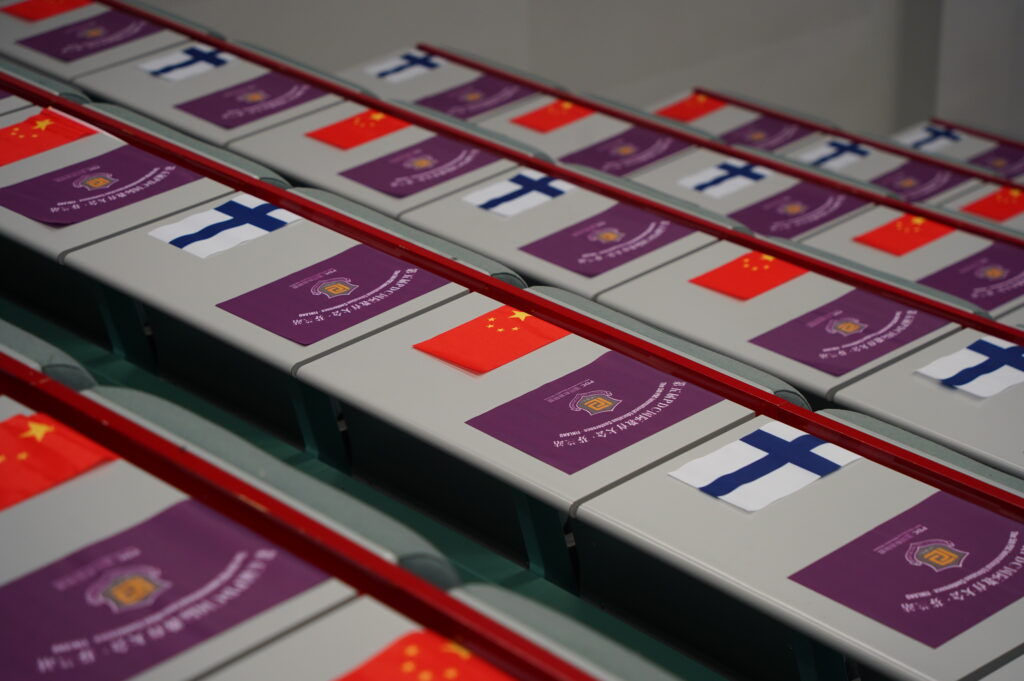
The choice of Helsinki as host city carried symbolic significance, given Finland’s global reputation for educational excellence and innovation. Professor Jan Lundell, Professor of Chemistry at the University of Helsinki and Director of the LUMA (STEM) Centre, represented the university’s longstanding commitment to STEM education through its LUMA Centre provided an appropriate setting for discussions that frequently centered on integrating science, technology, engineering, arts, and mathematics in innovative educational approaches.
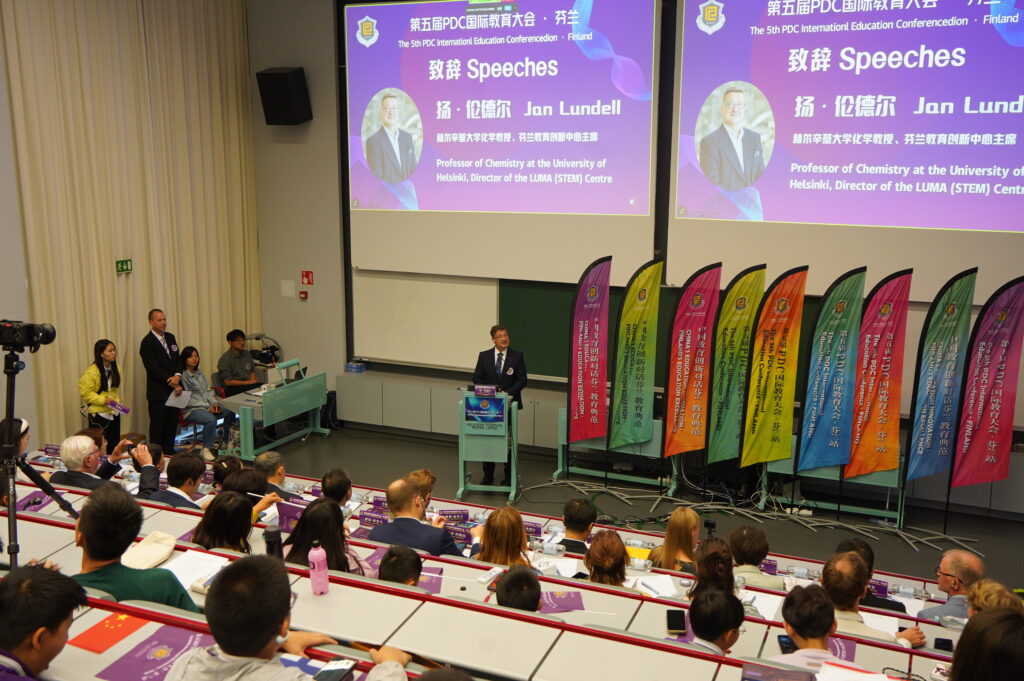
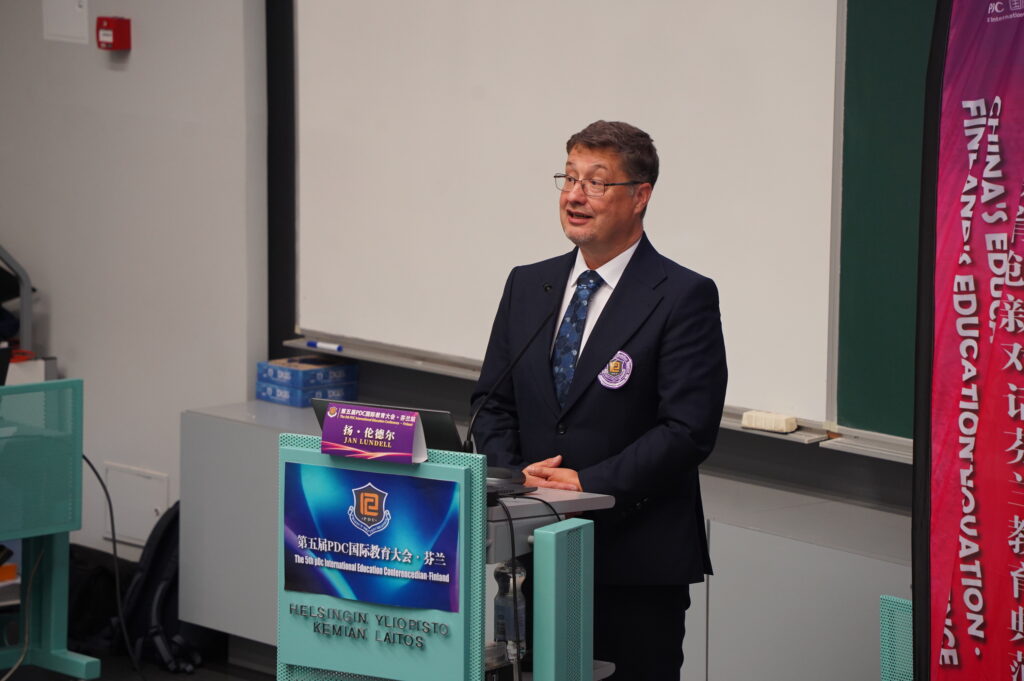
Morning Session: Framing the Educational Challenges
The conference’s morning session opened with formal welcomes from distinguished guests who set the stage for the day’s discussions. Dr. Kristof Fenyvesi, Senior Researcher at the Finnish Institute for Educational Research and STEAM director of Experience Workshop, introduced the conference themes and objectives, emphasizing the urgent need for educational systems to evolve in response to global sustainability challenges. His opening remarks highlighted how project-based learning methodologies could serve as bridges between traditional knowledge acquisition and the development of competencies needed for addressing complex real-world problems.
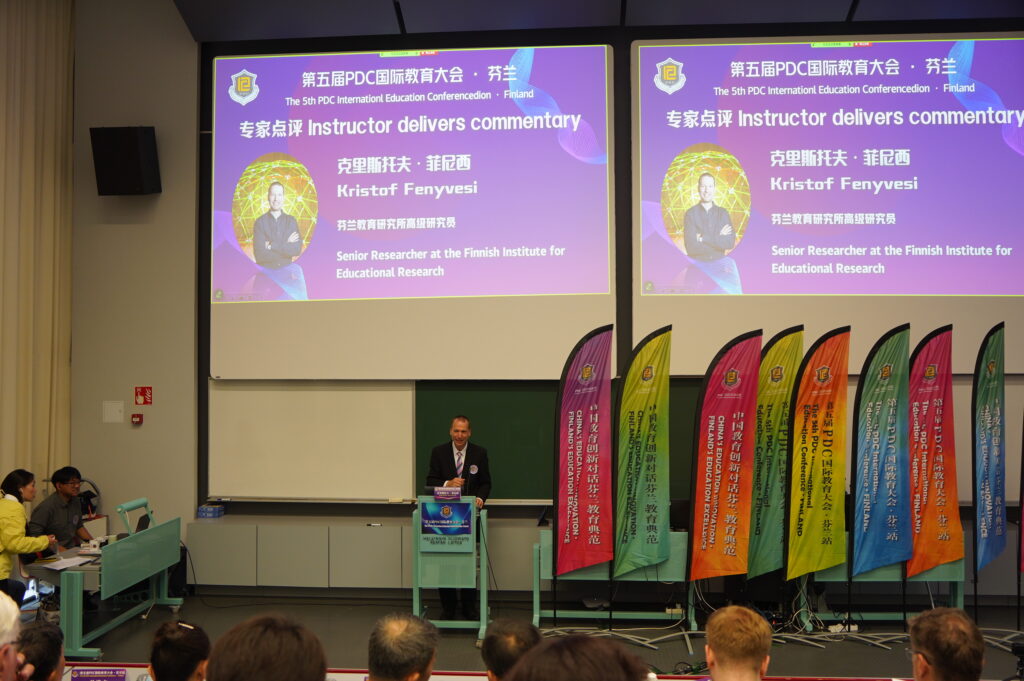
Professor Jan Lundell, Professor of Chemistry at the University of Helsinki and Director of the LUMA (STEM) Centre, discussed Finland’s approach to integrating science and mathematics education with practical applications. He was followed by Mr. Li Baorong, Counselor of Cultural and Educational Affairs at the Embassy of the People’s Republic of China in Finland, who emphasized the growing educational cooperation between China and Finland. Mr. Olli Suominen, Education and Science Counsellor at the Embassy of Finland, provided insights into how policymakers view the evolving educational landscape. A video message from Professor Gu Mingyuan, Prestigious Chinese educator and senior professor of Beijing Normal University, emphasized the global nature of the challenges being addressed. Contributions from Professor Song Huan, Vice Dean of Faculty of Education at Beijing Normal University, and Mr. Sun Xun, Deputy Director of Beijing Chaoyang Education Commission, further enriched this multicultural dialogue on educational transformation.
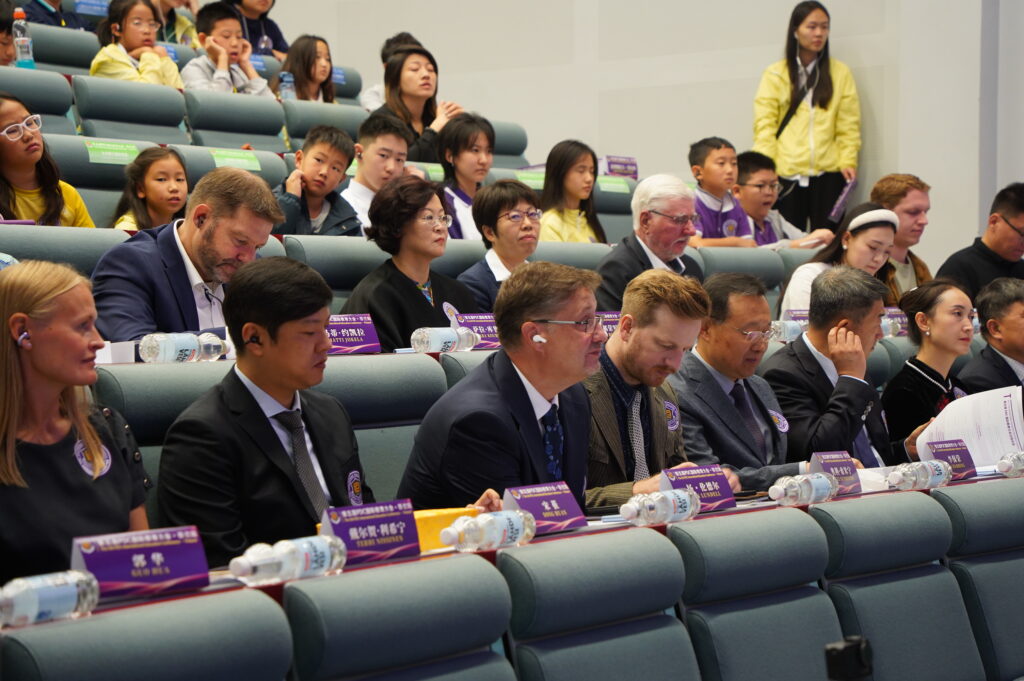
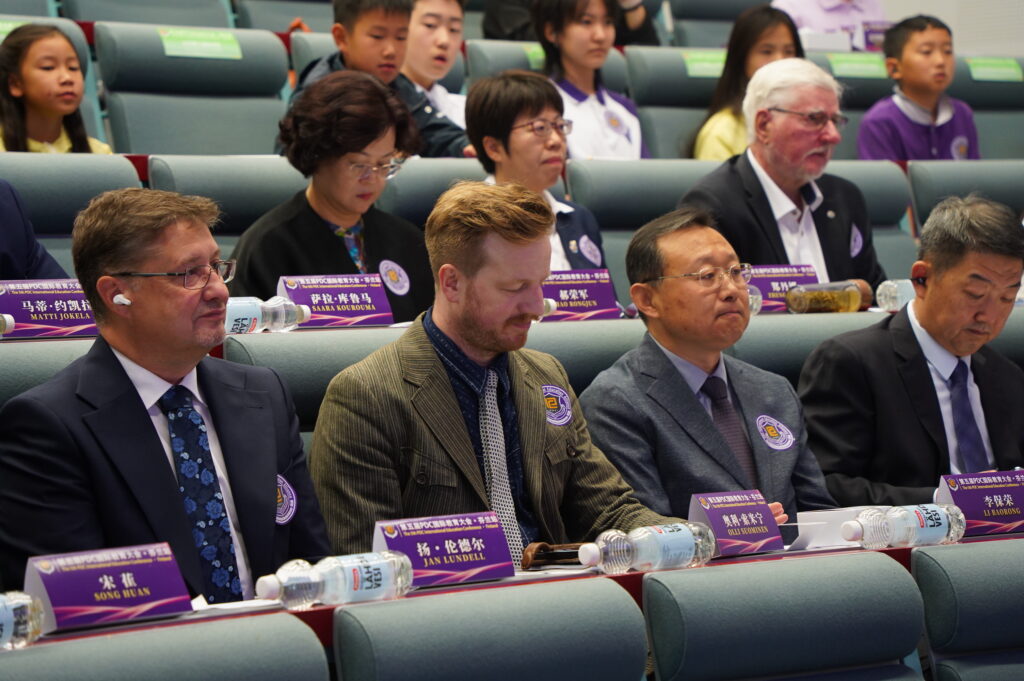
Student Presentations and Initiatives
One of the conference’s most compelling segments featured students themselves demonstrating the practical applications of project-driven learning approaches. The presentation “Safeguarding the Green Planet: Our Environmental Actions” showcased projects developed by Chinese students addressing environmental challenges through innovative solutions. These presentations provided evidence of how PDC methodologies can engage young learners in addressing real-world problems while developing critical thinking, creativity, and collaboration skills.
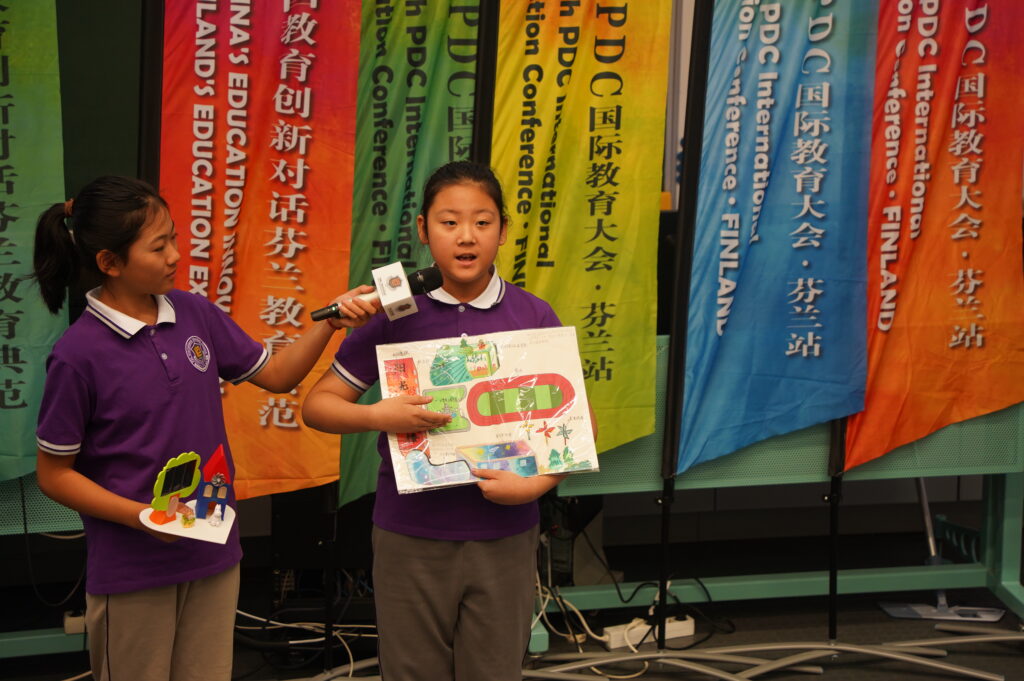
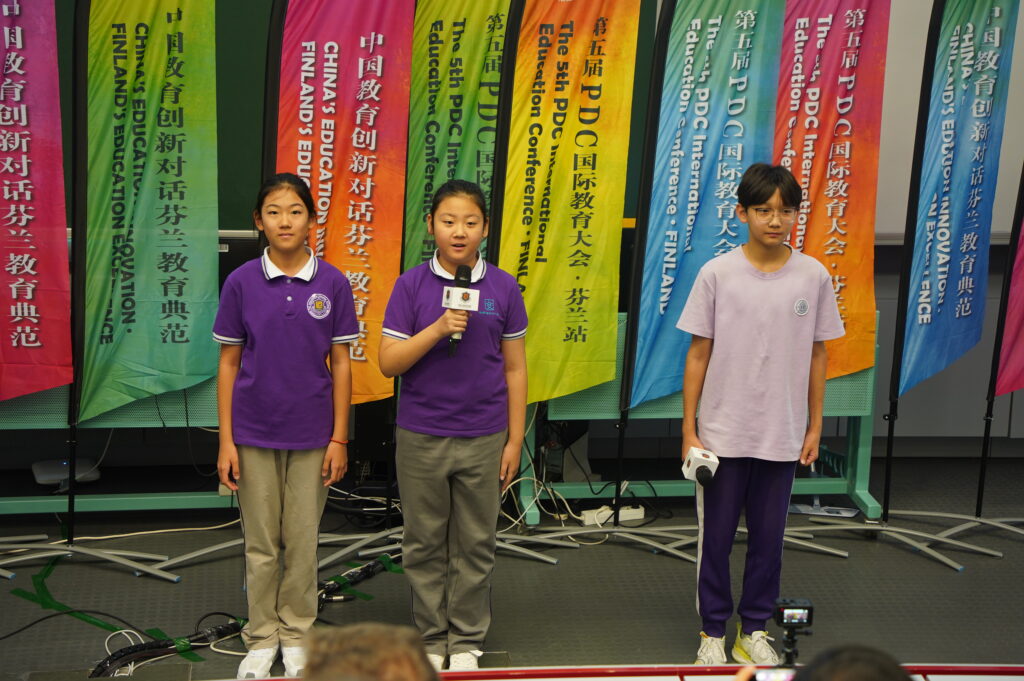
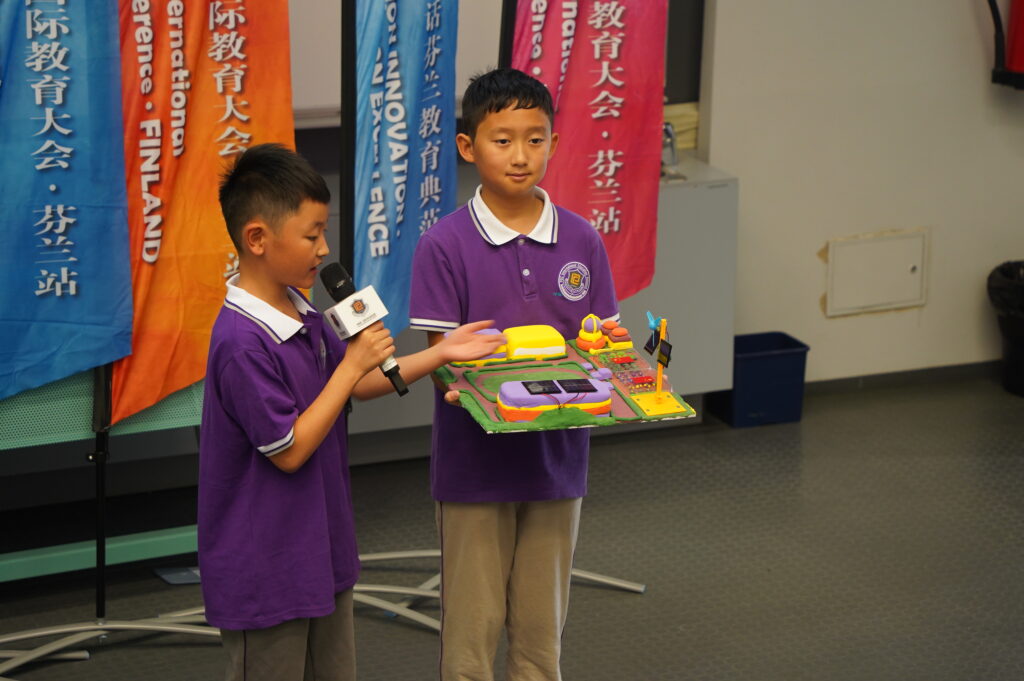
A highlight of this segment was the joint Chinese and Finnish Students Release of Global Youth Sustainable Action Initiative, which represented a collaborative effort between young people from both nations to articulate their commitment to sustainability practices.
https://drive.google.com/file/d/1M393n4qHqHj2lDz5yh95nTXlH5fFJmLM/view?usp=sharing
Following this, the Official Launch of the AI-Powered PDC Student Project Intelligent Assessment System introduced a technological innovation aimed at supporting project-based learning through advanced analytics. This system promises to provide teachers with sophisticated tools for evaluating student projects in ways that traditional assessment methods cannot capture, potentially addressing one of the significant challenges in implementing project-based approaches on a larger scale.
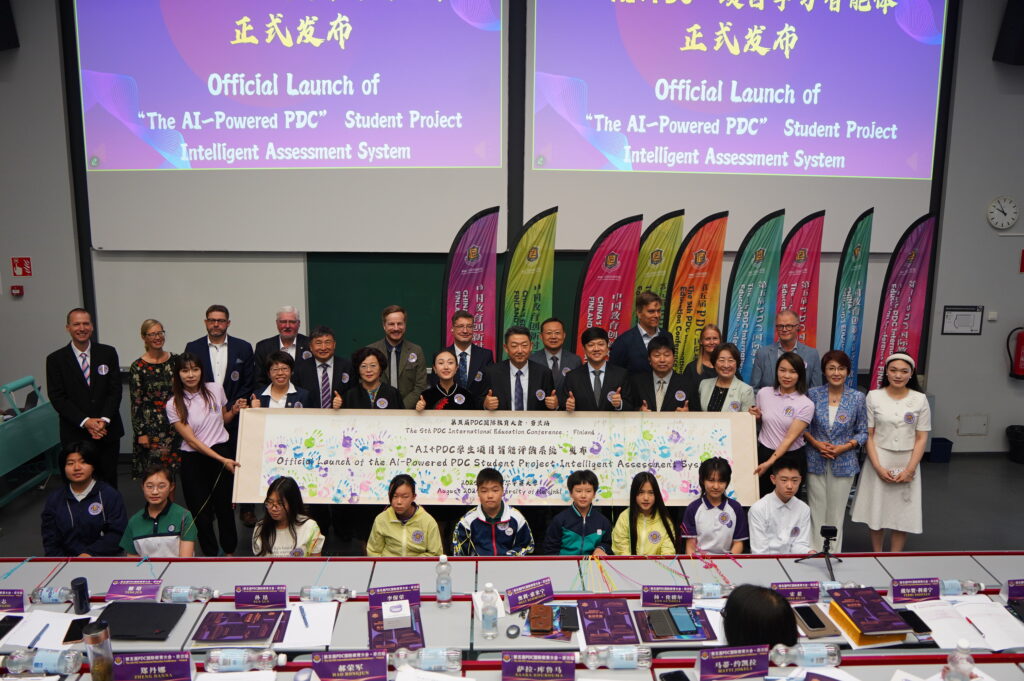
The session concluded with a video presentation of the “Our Future School” joint Chinese-Finnish student workshop, which had taken place during preceding days in Kuokkala School and Puisto School in Jyväskylä, Finland.
https://www.youtube.com/watch?v=I3302p8aX60
Collaborative Partnerships and Alliances
The conference served as a platform for formalizing and celebrating important international educational partnerships. Speeches by Matti Jokela, Principal of the Meritori school in Espoo, and Saara Kourouma, Principal of the Hertsikan school in Helsinki, highlighted the growing connections between Chinese and Finnish educational institutions. The Friendly Schools Agreement signing ceremony that followed, represented ongoing collaboration between Chinese and Finnish institutions, potentially creating the way for deeper exchanges of students, teachers, and educational methodologies in the coming years.
A significant development was the awarding of Letters of Appointment to International Experts of the “PDC Expert Think Tank,” which established a formal network of scholars and practitioners committed to advancing project-driven creation methodologies globally.
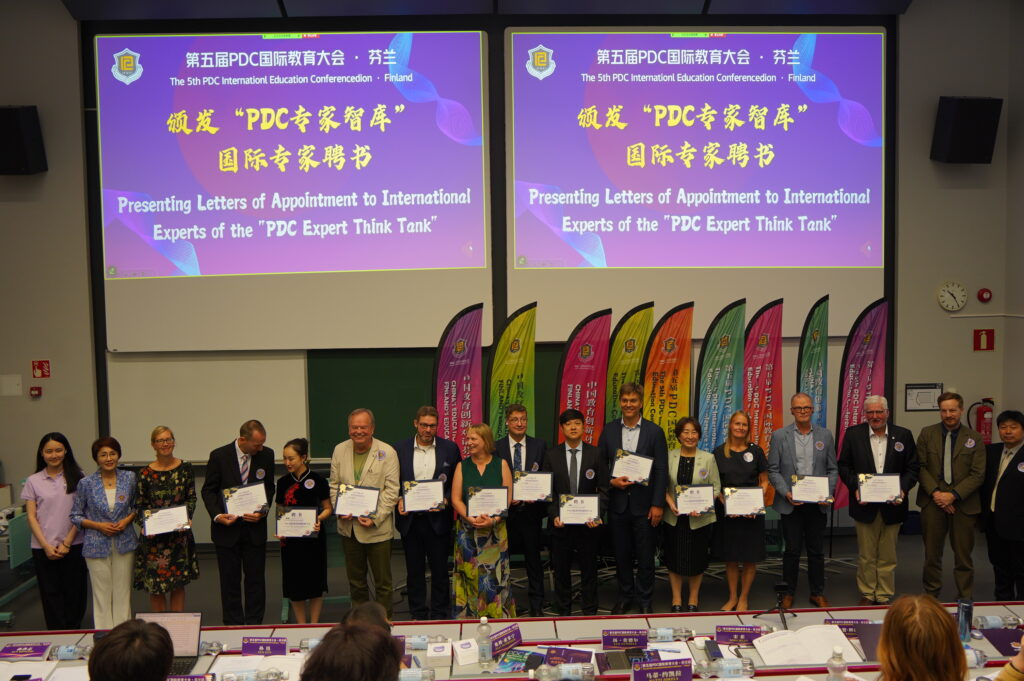
Academic Discourse and Roundtable Discussions
The conference’s academic program addressed key questions of educational transformation. Professor Jan Lundell opened the academic forum with a presentation on “Educational Transformation for Sustainable Talent Cultivation,” exploring how university-level STEM initiatives can support broader educational reforms. He was followed by Professor Guo Hua from Beijing Normal University, who addressed the critical topic of “Cultivating Sustainable Talents Through Interdisciplinary Practice in the Age of Artificial Intelligence,” examining how AI technologies both challenge and enable new approaches to talent development. Dr. Kristof Fenyvesi then expanded the discussion to a global perspective with his presentation on “Educational Transformation for Sustainable Talent Cultivation from a Global Perspective,” drawing on his extensive research in STEAM education across cultural contexts.
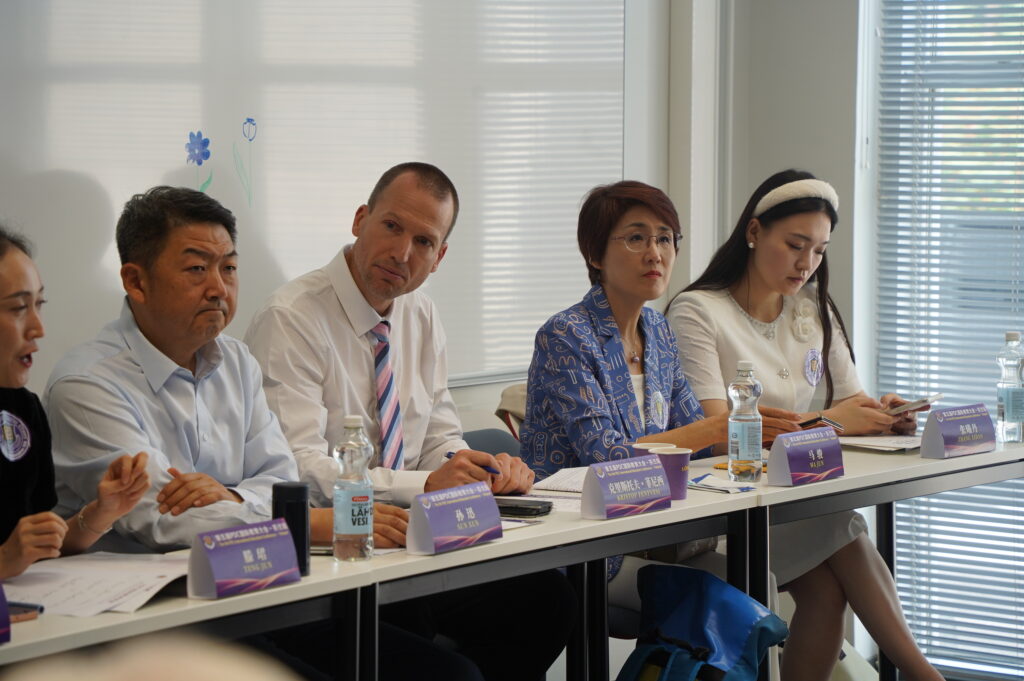
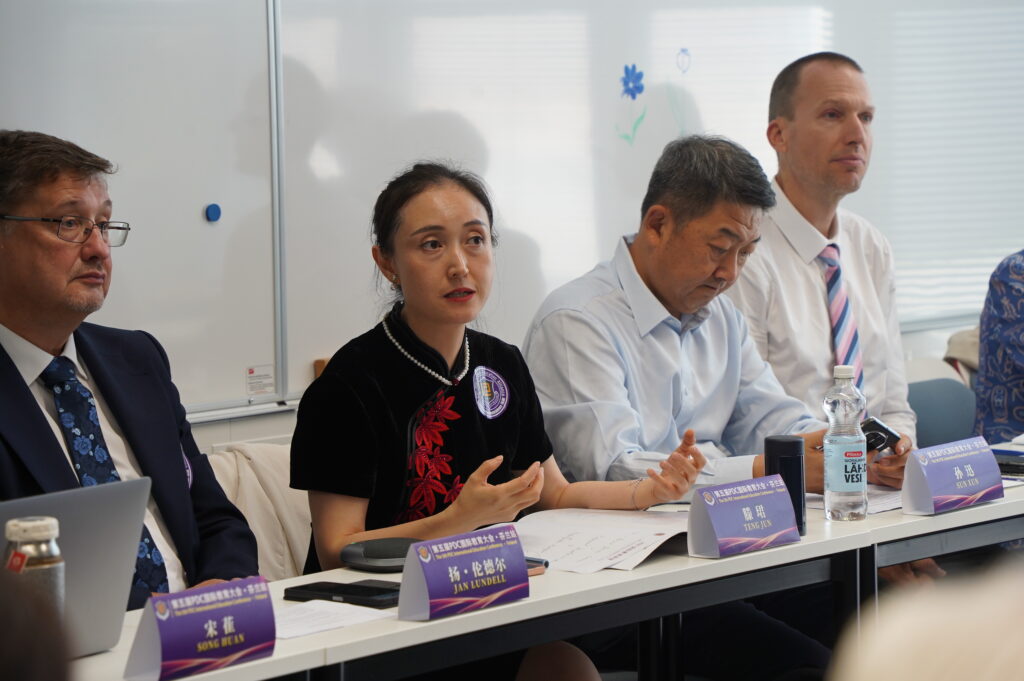
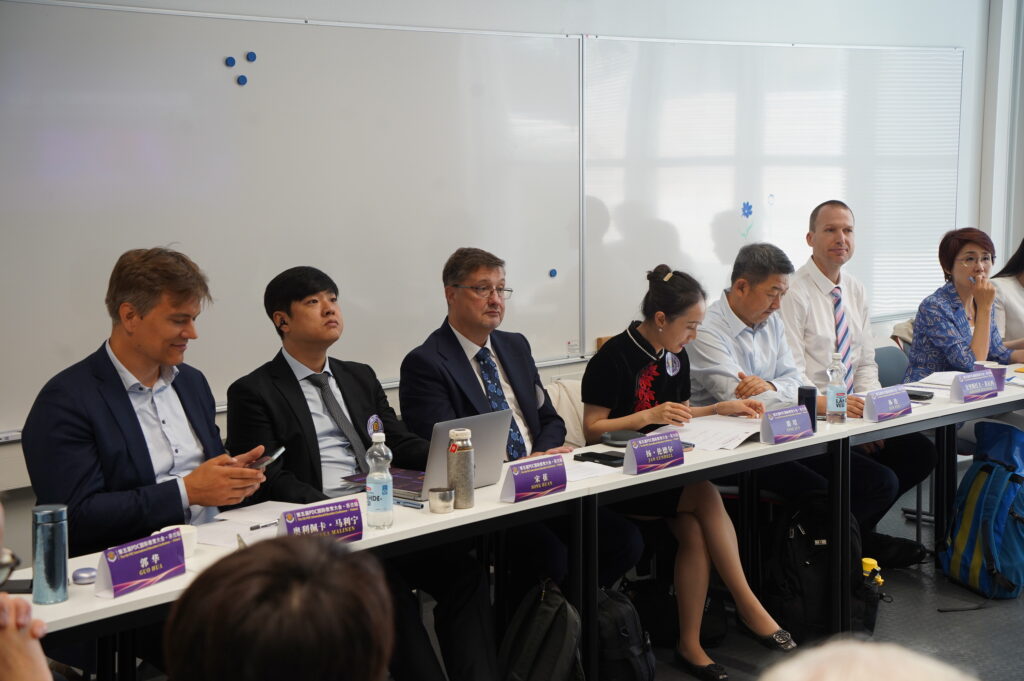
European perspectives were well represented by Zoltán Marton, Head of the Hungarian STEM Platform, who discussed “Talent Development through STEAM in the EU,” and Ioannis Liritzis, Vice-President of the European Academy of Sciences and Arts, who explored approaches to talent development within the European context. Together, these presentations created a comprehensive picture of how educational transformation is being approached across different cultural and national contexts, revealing both common challenges and distinctive approaches.
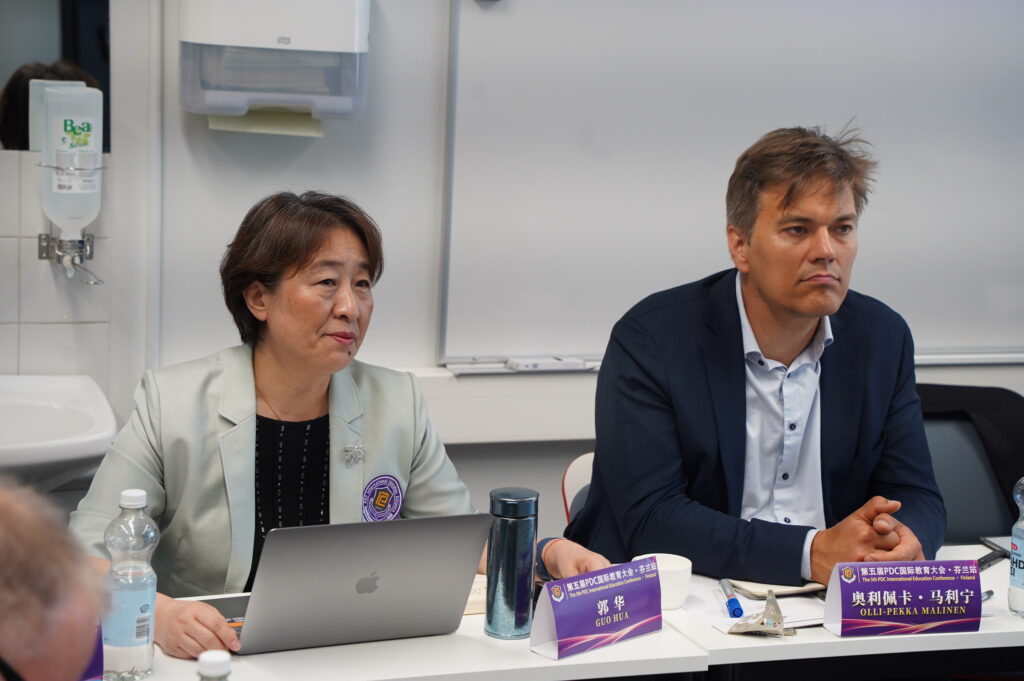
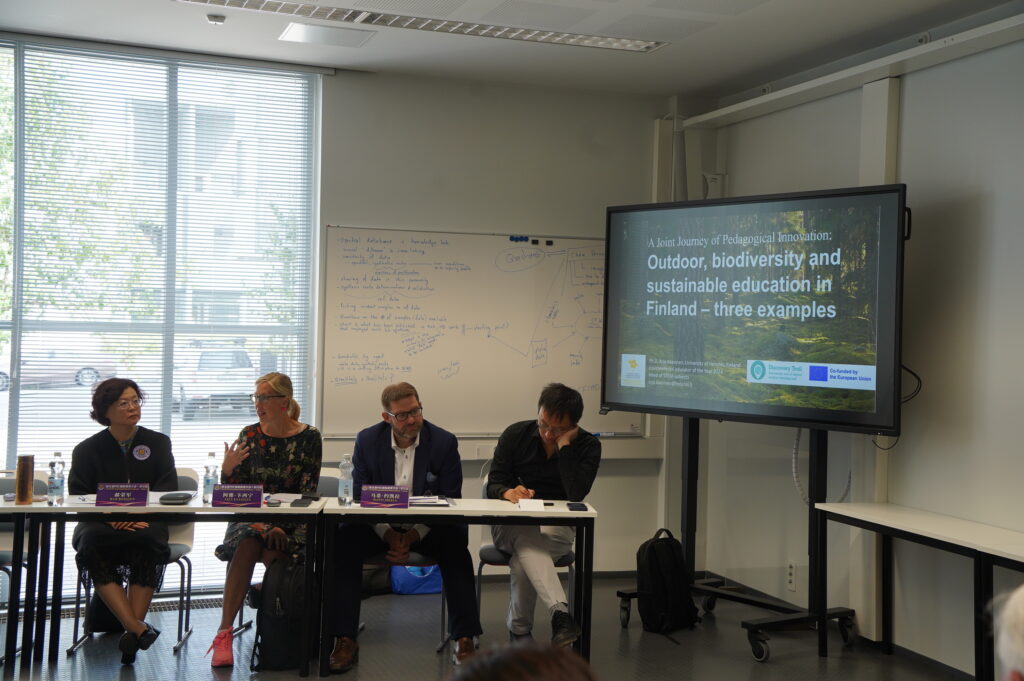
The afternoon Expert Roundtable Salon, hosted by Professor Teng Jun, Vice Dean of Faculty of Education at Beijing Normal University, explored specific aspects of educational transformation. With four distinct topics: (1) “Breaking Through Global Competition: Reconstructing Students’ Core Competencies through China-Finland Educational Collaboration” featured insights from Olli-Pekka Malinen (University of Helsinki), Sun Xun (Beijing Chaoyang Education Commission), and Hannu Salmi (University of Helsinki); (2) “The Transformation of Teaching Methods in the Development of Basic Education” was explored by Professor Guo Hua (Beijing Normal University), Arja Kaasinen (University of Helsinki), Martti Hellström (Espoo), and Li Huaidong (Chaoyang District Academy of Educational Sciences); (3) “Transformation of Learning Approaches in the School of the Future in the Age of Artificial Intelligence” engaged Professor Song Huan (Beijing Normal University), Dr. Kristof Fenyvesi (Finnish Institute for Educational Research), Professor Jan Lundell (University of Helsinki), Heikki Vesa Ervast (University of Lapland), and Terhi Susanna Nissinen (City of Kerava Finland); and (4) “Discussion on the Application of Project-Based Learning (PBL) in Educational Transformation” featured contributions from Matti Jokela (Meritori school), Zheng Danna (Chuiyangliu Central Primary School), Saara Kourouma (Hertsikan school), and Hao Rongjun (Chaoyang Experimental Primary School). These discussions addressed educational transformation from multiple perspectives and at various levels of implementation.
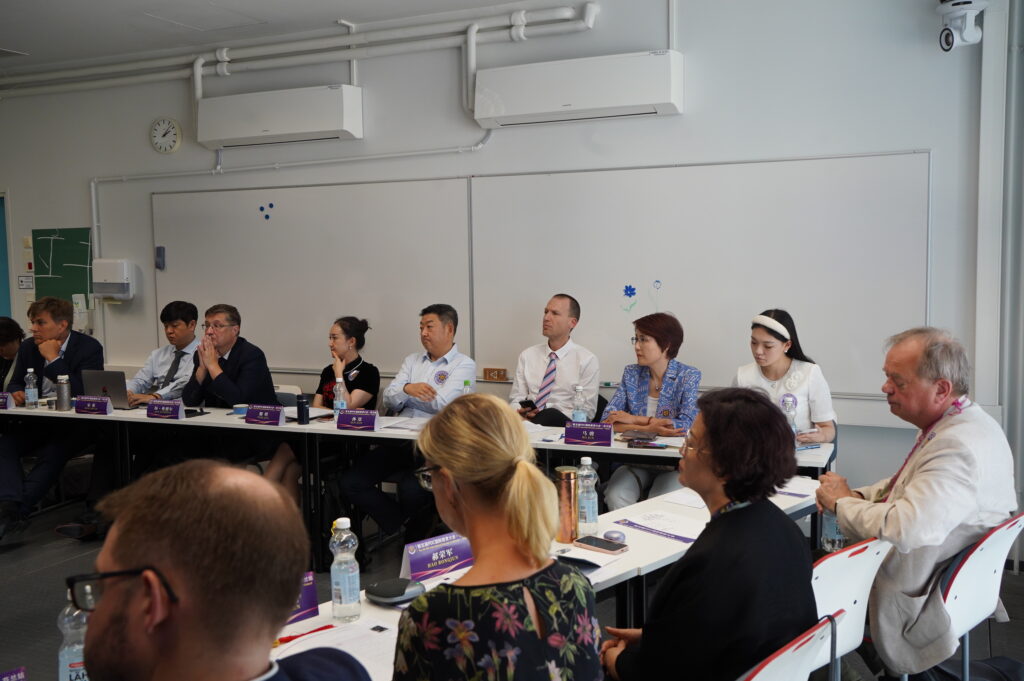
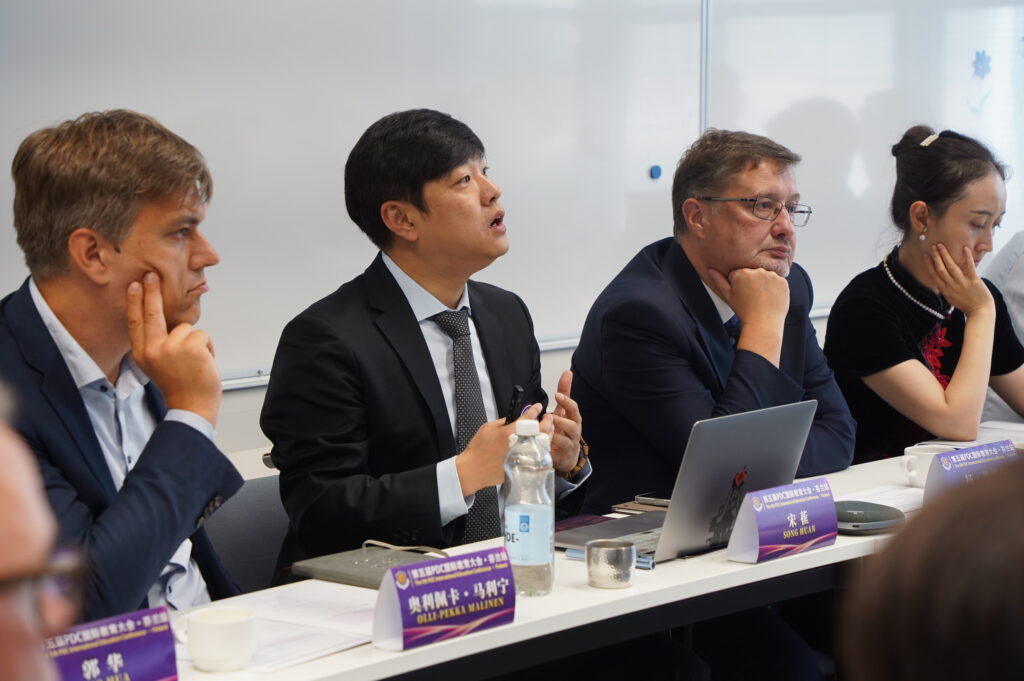
While these high-level academic discussions unfolded, a parallel hands-on learning experience was taking place. Selected Chinese and Finnish students participated in a STEAM workshop led by teacher Matias Kaukolinna. This session was followed by student project showcase with real life student AI assessment tools connecting both participants of the round table discussion and students in the main auditorium.
In the closing ceremony Experience Workshop awarded student research certificates and project display certificates to all young participants.
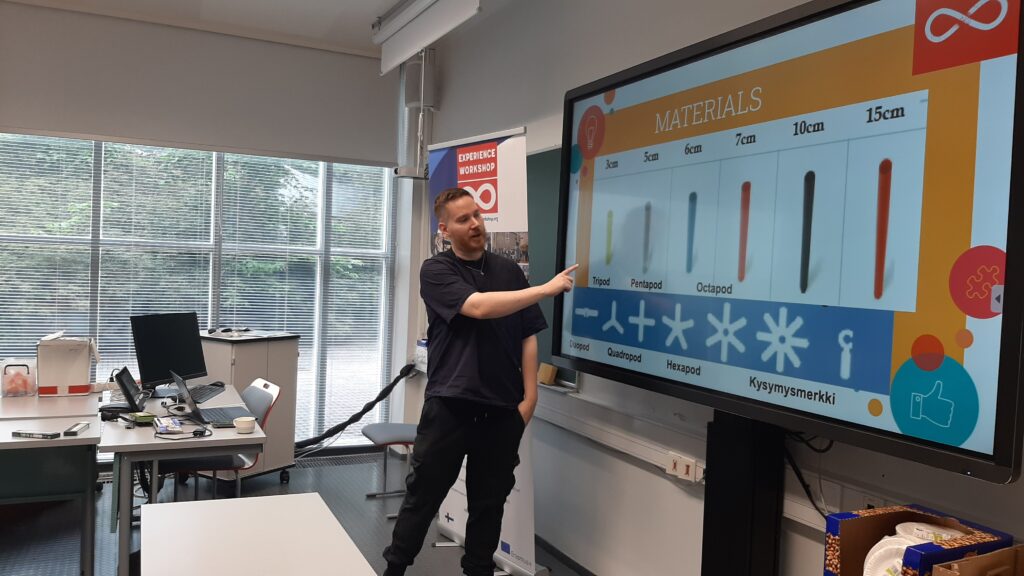
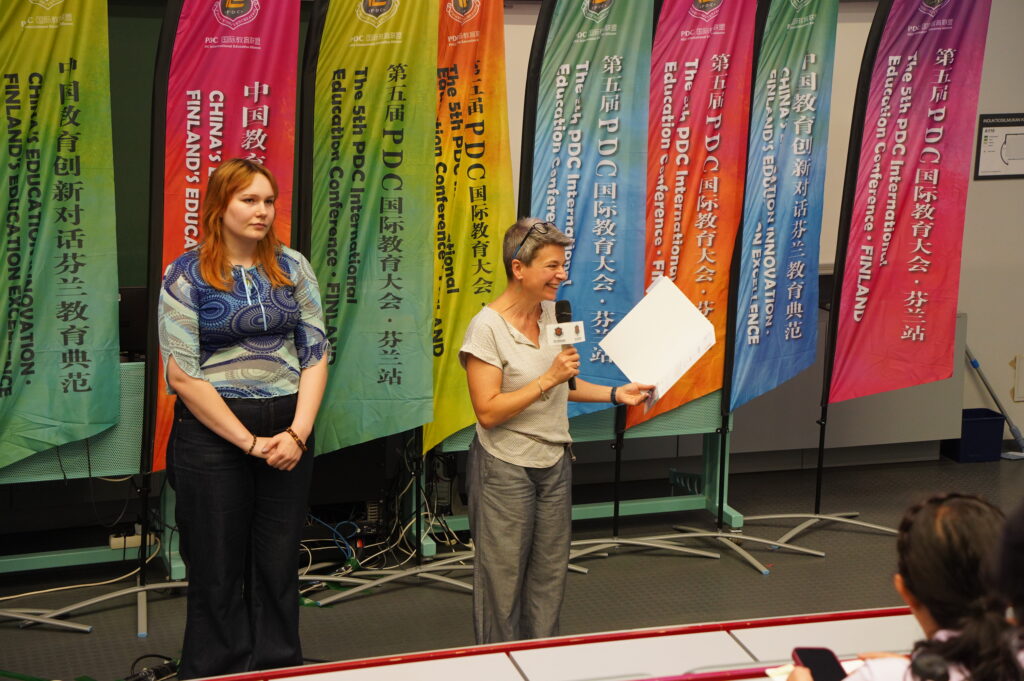
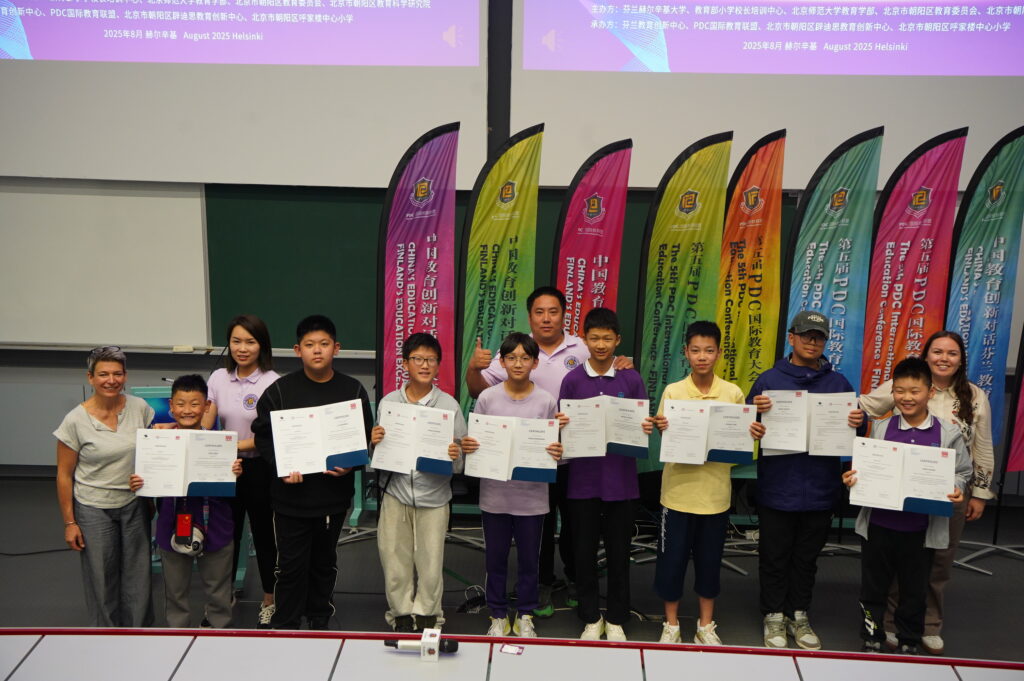
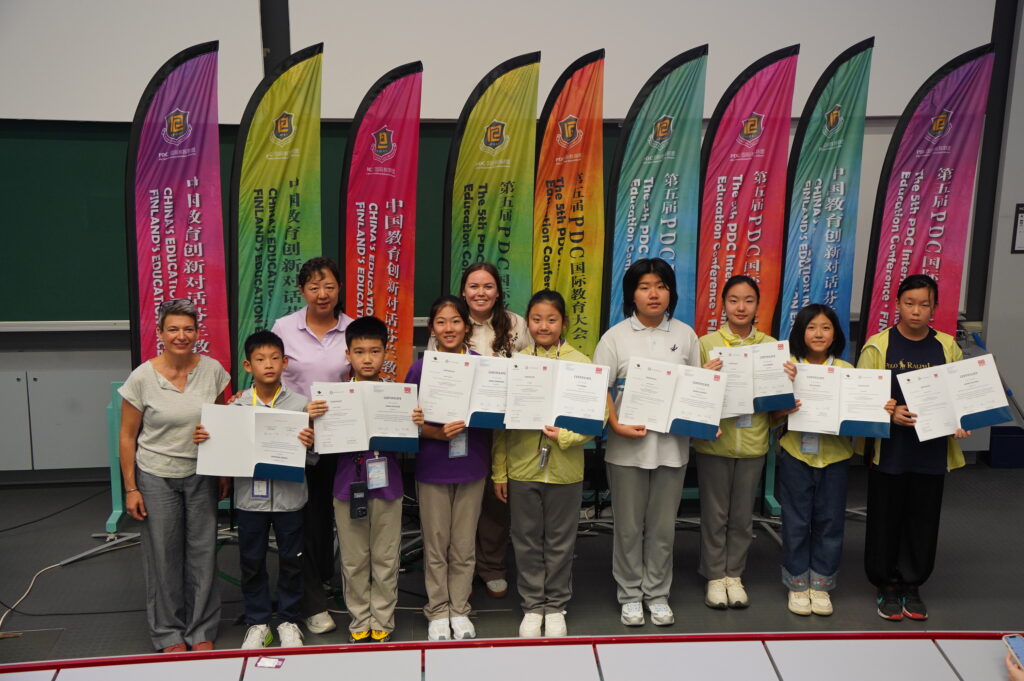
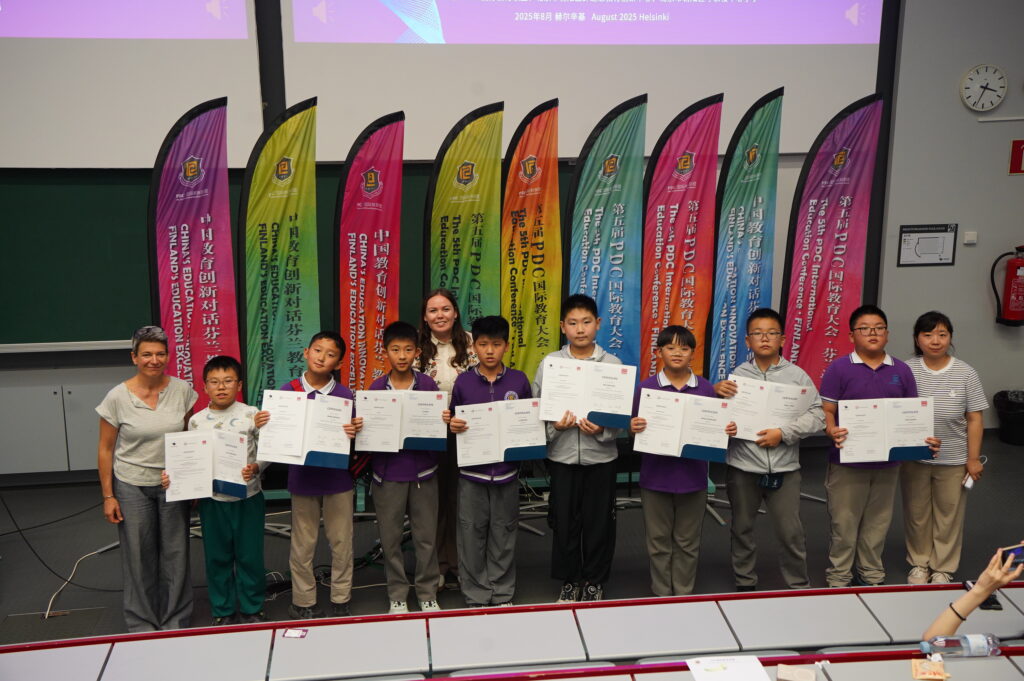
Media Coverage and Recognition
The 5th PDC International Education Conference gained significant media attention, particularly from Chinese news outlets, with over twenty mainland media organizations providing coverage of the event. This extensive media recognition reflects the growing importance attached to educational innovation and Sino-Finnish educational exchange within China. Xinhua News Agency, China’s official state news agency, featured the conference in multiple reports, highlighting its significance in the context of China’s ongoing educational reforms:
http://www.news.cn/world/20250816/997a34769a3c4b5a92cb71f34492bd5a/c.html
https://www.chinadaily.com.cn/a/202508/17/WS68a172c1a310b236346f20c0.html
Helsinki-spotlight-for-Beijing-schools-AI-project-Chinadaily.com_.cn_
Photo credits: Nóra Somlyódy, Tereza Pruknerová, Charlotte AU YONG, Lijia Huang, Yunyi Luo, Eeva Kuorikoski and Zoomland
+358452560420

